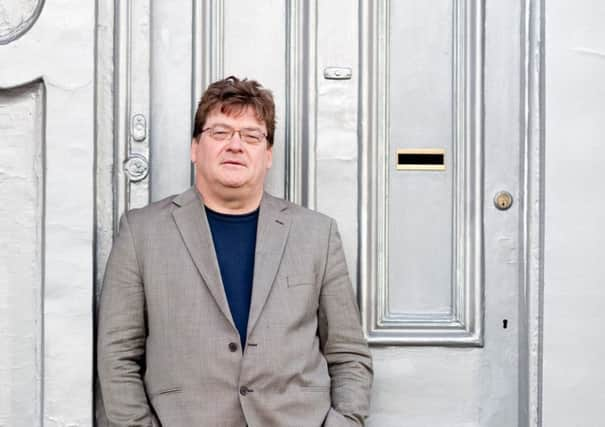Poetry review: StAnza 2019, various venues, St Andrews


Certainly no one had to be convinced that the world needs saving, with the political situation in both the US and the UK darker and more confused than it has been at any point in StAnza’s 22-year history. But is poetry up to the task, or does it, as WH Auden’s much quoted and misquoted line suggests, “make nothing happen”?
Burnside made a powerful case for poetry as a vehicle for expressing grief and anger, for elegising what has been lost and celebrating what we still have and for diagnosing the ills of society perhaps more incisively than prose writing. Quoting 20th-century American poets Marianne Moore, Robert Bly and Ferlenghetti himself, he demonstrated how a poem written 50 years ago can address today’s problems with uncanny precision.
Advertisement
Hide AdAdvertisement
Hide AdI would guess that the majority of the poets who gathered in St Andrews from all over the world for five days of readings, performances, workshops and exhibitions are not thinking primarily about saving the world. However, there were moments when this passion surfaced: in the work of Brooklyn-born Joe with the Glasses, writing about gun violence and race hate in Trump’s America, or the way in which Nadine Aisha Jassat reflected back her own experiences of racism and sexism or the energy and humour of Caroline Bird, an articulate, dynamic voice coming from young queer experience.
As the Brexit debacle rumbles on, StAnza celebrated difference, bringing together languages such as the Catalan of Josep Pedrals and the interwoven Welsh and English of Menna Elfyn. It also brought together people who live across and between borders: George Mario Angel Quintero from California and Colombia via the New York of the Beat poets; Matthew Stewart, an English writer who has made his home in Spain but lives with the emigrant experience of not feeling entirely at home in either place.
International Women’s Day fell in the middle of the festival, and the strength and diversity of women’s voices was one of this year’s strongest features. Scotland’s Gerda Stevenson, read from Quines, her celebration of little known Scottish heroines stretching back 5,000 years. Jacqueline Saphra, one of the highlights of the festival, cast a knowing eye over the behaviour of men towards women, whether that of her own father or the male bastions of the literary canon. She also read from A Bargain with the Light, her powerful sonnet sequence inspired by the work of model and photographer Lee Miller.
The work of AE (Alicia) Stallings, an American writer living in Athens, was a revelation to many at StAnza. A classicist steeped in the writing of the ancients, she brings something of their wit and wisdom to her own observations of contemporary life. Her most recent work revisits Hesiod, one of the earliest writers in western literature, finding concerns which are timely in our own world: debt, hunger, work, right relations with your neighbour and the land.
Family, both celebrating it and exploring its challenges, was a reccurring theme. Saphra wrote powerfully about her parents, and both Mary Jean Chan and Scotland’s Diana Hendry returned more than once to the subject of their mothers. Black Country poet Liz Berry evoked the spectrum of emotions associated with becoming a mother herself in a superb reading, which included her poem The Republic of Motherhood, the winner of the Forward Prize for best single poem in 2018.
StAnza continues its valuable job of recovering lost voices from the past, this year including the work of Scottish poet and playwright Jean Ure, recently republished thanks to poet Richie McCaffrey, and Scots-Jewish poet AC Jacobs, whose life lived on the margins has much to say to today’s society. Scottish poet Tom Pow paid tribute to the translation work of the late Alastair Reid, concluding his talk with a recording of Reid himself, a spine-tingling moment which brought a voice from the past – almost literally – back to life.
One of the reasons people love poetry is that they find in a poem something which resonates with their own experience, whether that is in Ferlenghetti writing in the 1980s about the erosion of freedom or Alan Spence, who can pinpoint in the few haiku syllables a moment which is both unique and entirely recognisable. Can poetry save the world? Burnside answered his own question – and StAnza went on to repeat that answer again and again over the course of its five days. “Don’t be silly. Of course it does. It saves the world every day.” - Susan Mansfield